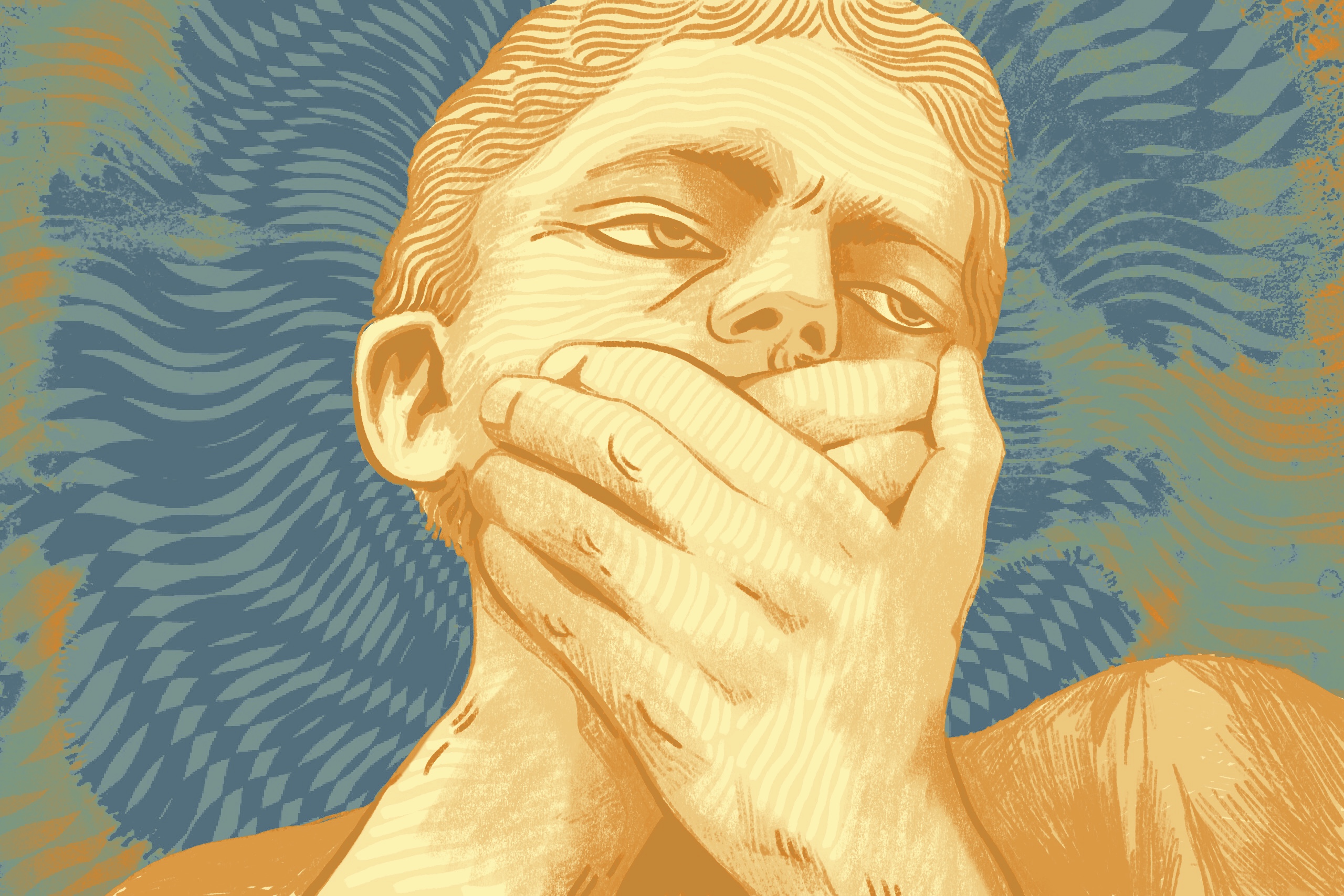The voice came from behind me,
polite and clear: “Excuse me, sir, would you buy me a meal?”
I was in line at the International Village McDonald’s, on the cusp of the Downtown Eastside, contemplating whether to splurge on a milkshake before going upstairs for a movie. I was actually a bit broke, but I’m receptive to courtesy, and when I saw that the man asking was a punk—a subculture I’m partial to—I said yes.
He ordered a burger combo and a side of hotcakes—taking advantage of my generosity a bit, but I was committed. I tried joking with him. “Carbing it up, eh?” I might have said something about solidarity between punks.
He looked at me with concern. My speech was slurred, wet, lisping; my articulation, mangled. “Are you all right?” he asked.
It was the first time a stranger had reacted that way to me, but it didn’t come as a surprise. In December 2020, I had a large portion of my tongue removed as a preventive measure against recurrent squamous cell cancer. There had already been two operations, each removing a larger chunk. My oncologists discussed chemotherapy and radiation, but decided on a less intrusive left glossectomy, and to replace half my tongue with tissue grafts from my wrists.
That tissue has no muscle and few nerves. I may be cancer-free, but I’ve had to relearn how to eat and speak.
More than three years later, I still sometimes have to stick my finger into my mouth to assist in chewing. I’ve declined invitations to dinners where I thought this might cause embarrassment. Because I can’t swallow saliva effectively, I sometimes drool or spray, and I periodically have to slurp loudly to clear my mouth, which can startle the cat and try the patience of my wife, especially when I’m next to her in bed: SLLFFMP!
Other side effects range from merely weird to potentially life-threatening. Because my grafts still have follicles in them, I have hair growing on my tongue (and a deeper appreciation for The Island of Dr. Moreau). I have misjudged how hot food is and burned my mouth or, lacking sensation, ended up on the floor of the bathroom, choking on something unchewed.
I can no longer whistle. And while I drink more milkshakes, since they’re one of the easiest things to get down, I can’t use a straw for them—I lack the suction.
But the biggest physical impact has been on my speech. There was concern I would be unable to return to my job as an English tutor: would my students—mostly second language learners—understand me? And at public events, where people I know “from before” are present, I’ve held my tongue, so to speak, because I didn’t want to startle old friends with my new voice.
Truth is, I used to have some vanity about my speaking voice, pride when people told me I should be in radio. No one says that anymore.
That’s a fair number of physical impacts for the “less intrusive” option, but the biggest personal change since my surgery has, in fact, been to my sense of compassion. I’ve learned a bit about disability, and a bit about prejudice—including my own.
When I approach strangers, with my slurring, lisping, mangled articulation, even though they understand me, I often see them bristle, can see fear, discomfort, suspicion: What’s wrong with this guy? Why is he talking like that? And I’ve realized that I’ve done the same thing all my life when encountering non-normative voices. I hear someone speaking in an unusual way and instinctively look to figure out what their problem is, to set my mind at ease by pigeonholing them: Are they drunk? Mentally ill? Are they a threat? Do I need to protect myself?
Even though I’m guilty of such thoughts myself, it’s still irritating when, say, a grocery clerk answers me with exaggerated slowness and simplicity, assuming I’m intellectually disabled. I try to remind myself they mean well.
Shakespeare, riffing on the Gospel of Matthew, observed that the eyes are the windows to the soul; perhaps the voice is the herald of the brain? We take speech as an indicator of inner life, but, uh, my voice does not speak for me in this regard. It may be deficient, damaged, inelegant, but my brain is fine, dammit!
Sometimes people seem weirdly resentful, as if my difference has exposed them to vulnerability. Not long ago, I was getting very odd service at a restaurant, the waitress openly frowning, like my very speech was socially inappropriate. I figured I’d give her a break and, not that she’d asked, explained to her that I was a tongue cancer survivor: “That’s why I’m talking like this.”
Though clearly relieved, she veered in the other direction, overcompensating, telling me she was honoured to be serving me. Honoured? Whatever for? I mean, it’s just a medical issue, not an accomplishment!
I’d had no idea people made such judgements until I joined the ranks of the speaking impaired.
By contrast, the street punk at International Village made no assumptions and showed no irritation. His immediate, instinctive reaction was simple human concern. I guess maybe that’s a normal thing in the DTES—you have to take care of each other when you’re down that low. Was I okay? Did I need help?
It was touching, but I shrugged and laughed. “Nah, I’m fine—I had tongue cancer,” I told him. “This is just how I talk now! But thanks.”
Then I ordered my milkshake and paid for his dinner.
Read more from our Summer 2024 issue.









